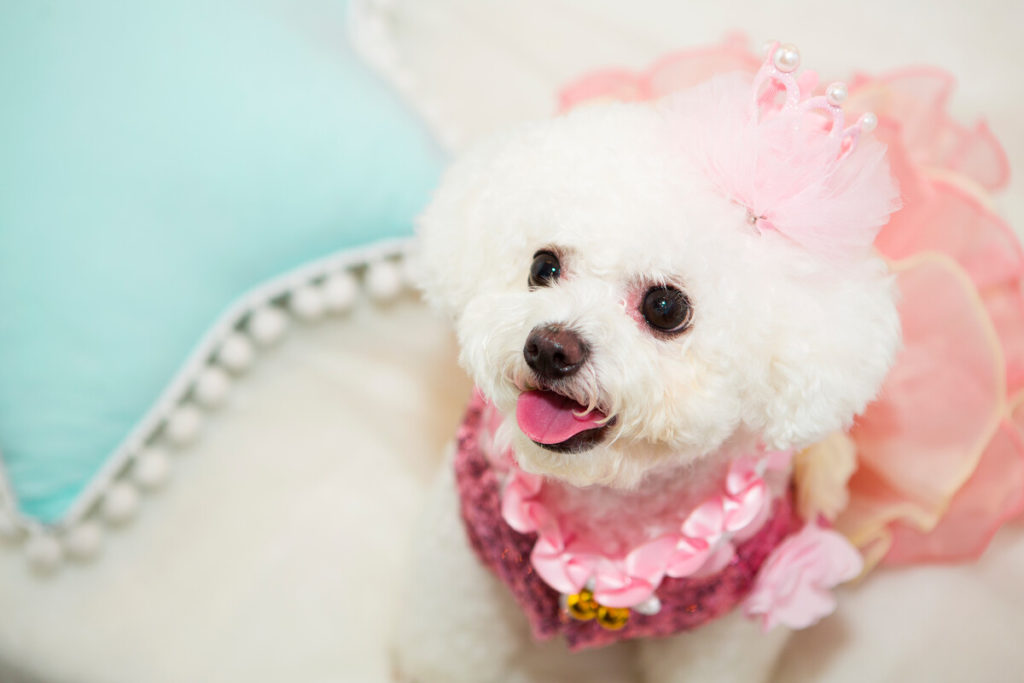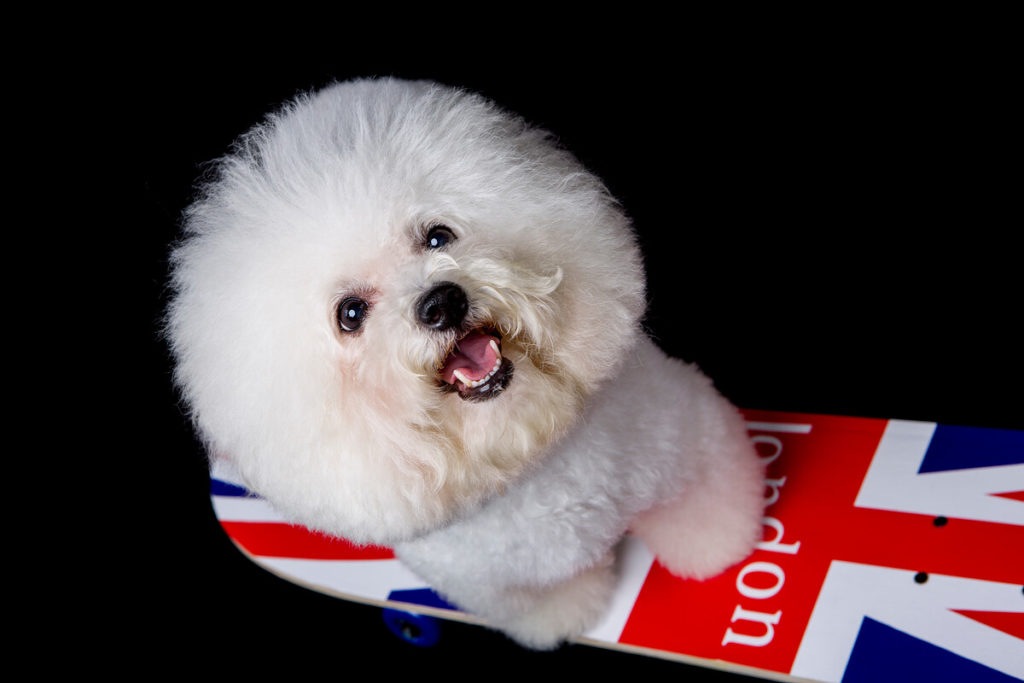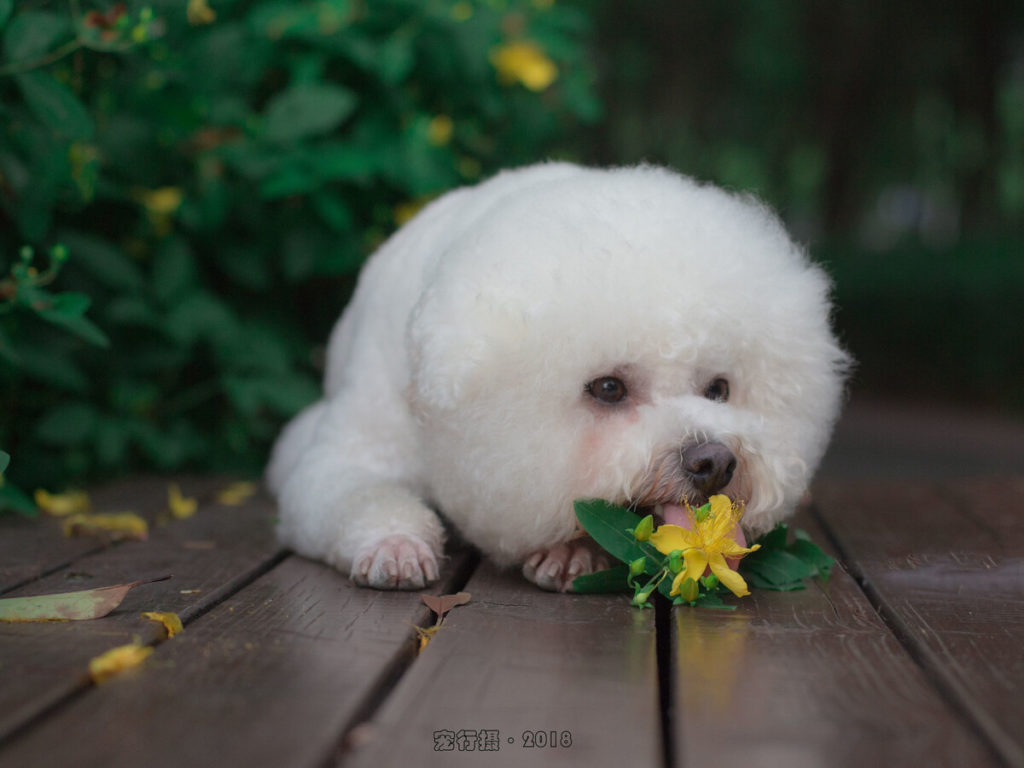Pugs have so much to offer dog lovers, They are happy, playful, and loyal.
With good always comes bad and Pugs can give off a foul odor from time to time. But, why do Pugs smell bad? The Pug breed isn’t known to be of the worst smelling dogs, but this isn’t to say there isn’t the occasional issue with their scent.
Many times, pet owners become immune to a poorly smelling dog or think that it’s natural. The fact of the matter is there could be an underlying health issue such as an ear infection, stomach issue, or dental problem. Not to mention, potential house guests may not appreciate your smelly Pug.
The good news is that once you figure out the cause of the smell, you can do something about it! Keep reading for all the scoop on why do Pugs smell bad and solutions.

Do Pugs Smell Bad? What Can I Do?
If you’re getting frustrated with a constant wonder of why do Pugs smell bad or if you should get a Pug, you’re in luck. While there are various reasons a Pug can stink, there are also plenty of fixes.
Their Skin Folds
One reason Pugs are so loved is because of their adorable wrinkles. These wrinkles are also referred to as skin folds. There is a good chance that your Pug’s bad odor is because of its skin folds. It’s important to consistently pay attention to your pup’s wrinkles because they can collect dirt and hold moisture which can cause an infection like Skin Fold Dermatitis.
Skin Fold Dermatitis is a common Pug health issue and is caused by skin folds rubbing against each other. Symptoms of Skin Fold Dermatitis are a reddish-brown rash, moistness, discharge, and you guessed it.. a stinky smell.
To prevent your dog’s wrinkles from resulting in an infection, it’s important to keep their skin folds clean and dry. Regularly wipe their wrinkles with grooming wipes and dry thoroughly with a soft cloth. A wrinkle balm that contains vitamins and antioxidants can also prevent yeast and bacteria build up in the skin folds.

If your pup does develop Skin Fold Dermatitis, your vet may choose to prescribe antibiotics.
Smelly Paws
Do you keep getting a whiff of popcorn or cheese? A yeast infection in a dog’s paw is often accompanied by an interesting smell similar to that of popcorn and cheese.
Signs that your Pug has a yeast infection are red and swollen paws, paw licking and chewing, red nail bed, hot spots, and flaky skin in or around the paws.
A yeast infection is often treated by a vet with antifungal therapy. To treat your Pug’s yeast infection at home, try a solution that consists of half apple cider vinegar and half water.
Apple cider vinegar is excellent for a dog’s skin because it’s acidic and contains healing properties. For easy application, put it in a spray bottle and spray on your pooch’s paw.
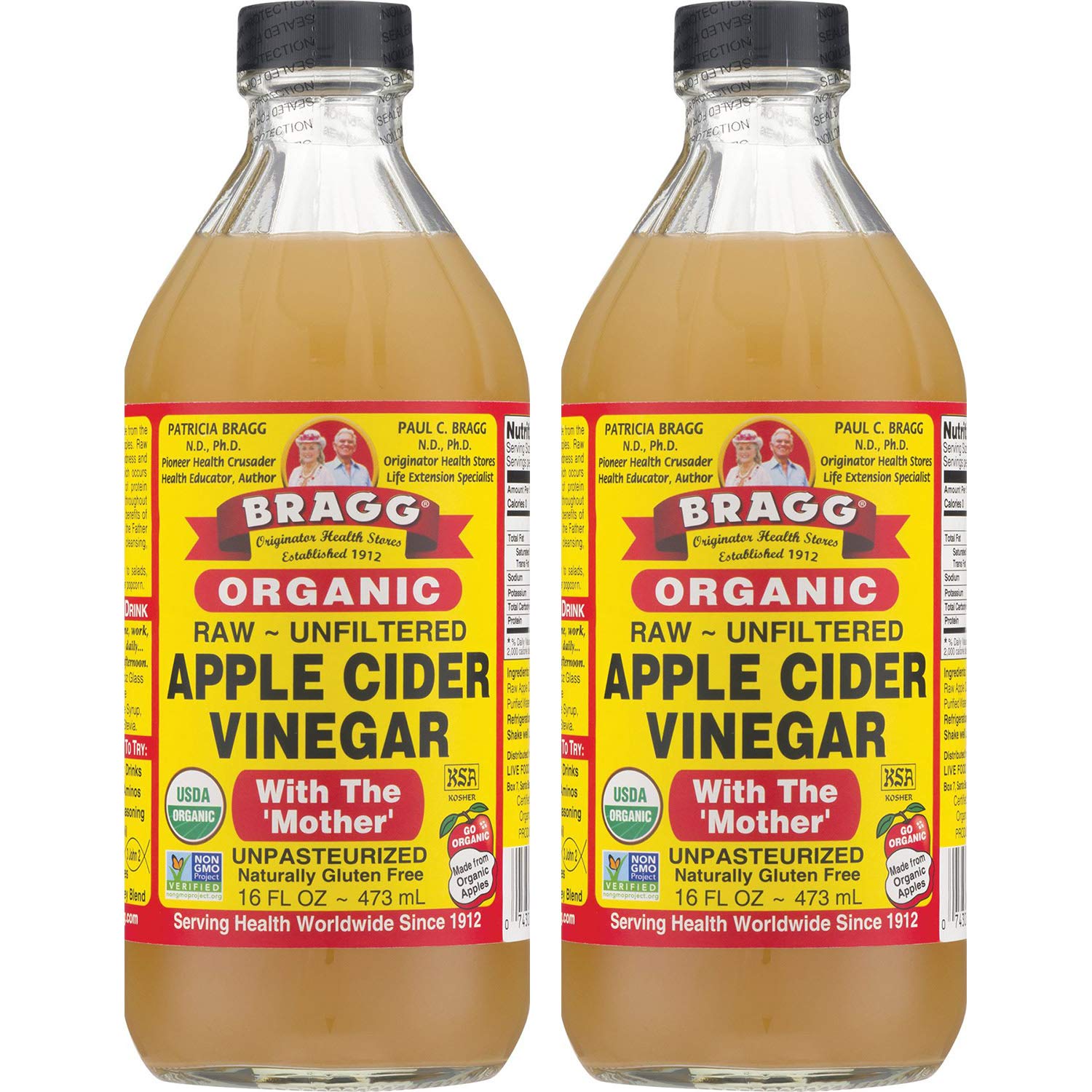
After applying the solution, completely dry their paw with a soft towel. Do not spray on open wounds because it will sting. Instead, you can add the apple cider vinegar to your pet’s water or food.
Stinky Ears
Like yeast infections in the paws, this can happen to your Pug’s ears if they aren’t properly cared for. Your Pug may be suffering from an infection in the ear if you notice smelly ears, discharge from the ear, or lots of scratching.
While many dogs naturally have clean ears, dirt can build up in them. It’s best if your Pug is used to having their ears touch so that it’s not too big of a challenge to get the job done when needed. It’s important not to over-clean them and to let them be if they look pristine.
If it seems to be time for an ear-cleaning because they look dirty or have an odor, all you need is an ear-cleaning solution and a cotton ball.

Using anything pointed in your dog’s ear like a Q-tip can cause dirt to be pushed further into your dog’s ear. Simply squeeze some solution into your pup’s ear, massage it for a few seconds, allow your dog to shake their head if they want, and wipe their ear out. Ear cleaning is not usually a dog’s favorite activity, but it’s nothing a few treats and praise can’t help. If your dog seems to be in pain during an ear cleaning, contact your vet.
Tail Pocket
Pugs’ tails are tiny and adorable. Some Pugs have a tail pocket, a dip below their tail and above their rectum. Some are born with it and others get it later in life. Like the skin folds mentioned above, a tail pocket has hidden skin that’s wrinkle-like and it can be difficult to keep clean. If a tail pocket can develop an infection like their ears and other skin folds can.
Again, wipes are great for making sure your pup’s skin is staying clean. Since Pugs are susceptible to tail pockets and other skin fold issues, having wipes on hand is not a bad idea. Always dry the area after you wipe it down as moistness can also lead to an infection.
If you notice swelling, pus, itching, and/or a foul odor in the tail area, your dog may already have an infection. A tail pocket infection can be painful and life-threatening, so contact your vet for further assistance if you notice these symptoms.
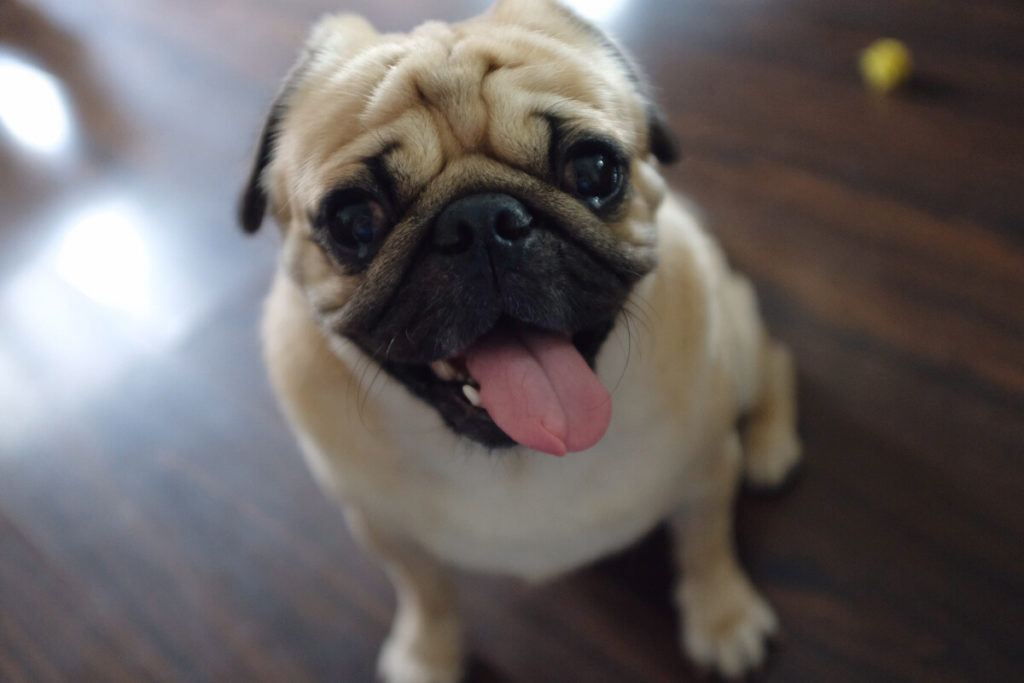
Gas
For various reasons, Pugs are known to fart a lot. It’s completely normal for your pup to pass gas that has formed during food processing like it is for humans. However, there may be a problem if your Pug farts a lot or if their farts are extra smelly. These issues may include a food allergy, a low-quality diet, or eating too fast.
You can stop excessive, stinky gas by checking your dog’s diet. They should certainly not be eating human food because many ingredients in our foods are not suitable for our pet’s stomach. Additionally, make sure your Pug’s diet includes protein, healthy fats from meat and oils, vitamins, minerals, water, and good carbohydrates and grains from fruit, vegetables, rice, oats, and barley. Limited-ingredient foods can be best for some dogs.
If your dog is a gobbler and eats their food too fast, they may be gulping air which results in gas. To prevent gobbling, you can use a slow feed bowl.

Bad Breath
When tartar and plaque build up on a human’s teeth, it results in bad breath. The same goes for canines. Keeping your Pug’s teeth clean is a sure way to help with smelly breath.
While brushing your dog’s teeth isn’t the most pleasurable task, it must be done regularly to keep their dental health in check. Your vet can also provide dental cleaning if there is excessive build-up.
Products that help keep your dog’s teeth clean and fresh smelling:
- The standard toothbrush and toothpaste – Prepare your dog for regular teeth brushing by touching their cheeks and mouth often. Make it the norm to look at their face and teeth.
- A dental chew toy – Your pup can enjoy some playtime while cleaning their teeth with a textured, specially made chew toy.
- Dental dog treats – A unique texture and special ingredients fight plaque and tartar and freshen your Pug’s breath.
Bath Time
The simplest answer to the question: why do Pugs smell bad could be that they just need an old-fashioned bath. Even if your Pug isn’t experiencing an issue to be worried about, they may simply just be due for a good wash.
Regularly bathing your Pug can prevent grease and dirt from building up in their fur and their skin pores from being clogged. Baths also keep a dog’s coat fresh and shiny-looking. If you give a bath too often, their skin may dry out. About four baths a year is standard but more is okay if your pup needs it.
This lavender chamomile dog shampoo cleanses, conditions, detangles, moisturizes, and smells nice. Always fully dry your dog after a bath. Leaving them wet can not only result in a skin infection but makes them smell undesirable.
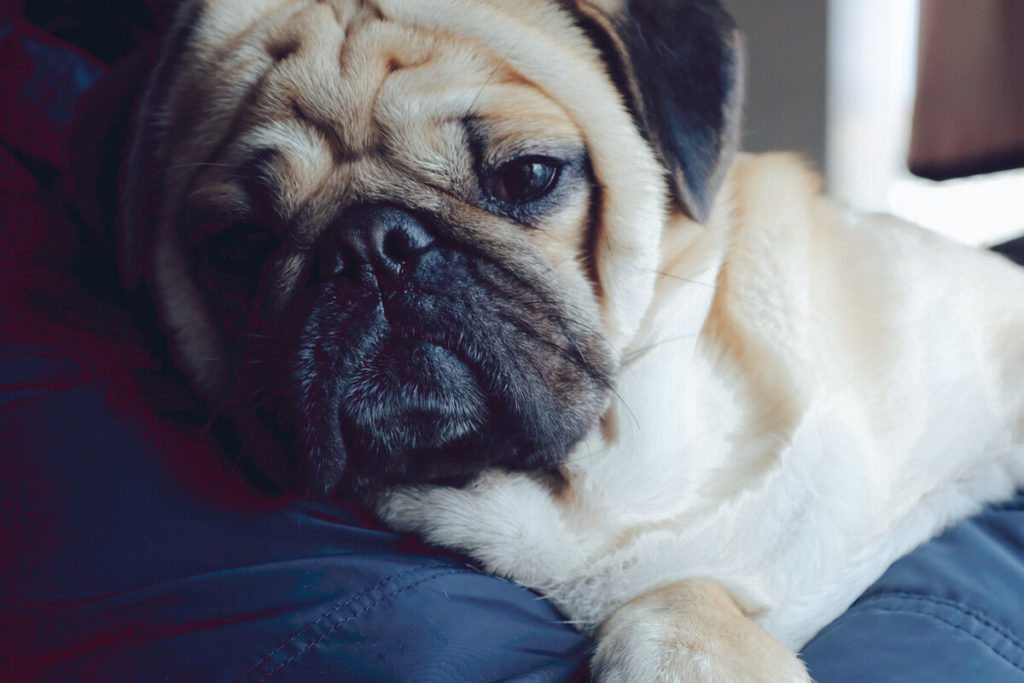
Dry shampoo is perfect for keeping your Pug’s coat smelling nice between baths. All you have to do is massage it into their coat and go. No rinse is needed.
Change Out Their Belongings
Grooming is the key factor to a fresh smelling dog, but new toys and beds on occasion can mean extra freshness. It seems that your pup could develop some foul odors if it is lounging on a dirty bed or cuddling with old, stinky toys.
Final Thoughts
A rule of thumb to maintaining a nice smelling dog is to take care of it. It takes some effort, but it’s worth it to see your beloved fur child happy and healthy. Of course, issues can arise for any pet and your vet is always a phone call away if a problem persists.
All in all, some good tender, love, and care can go a long way!


